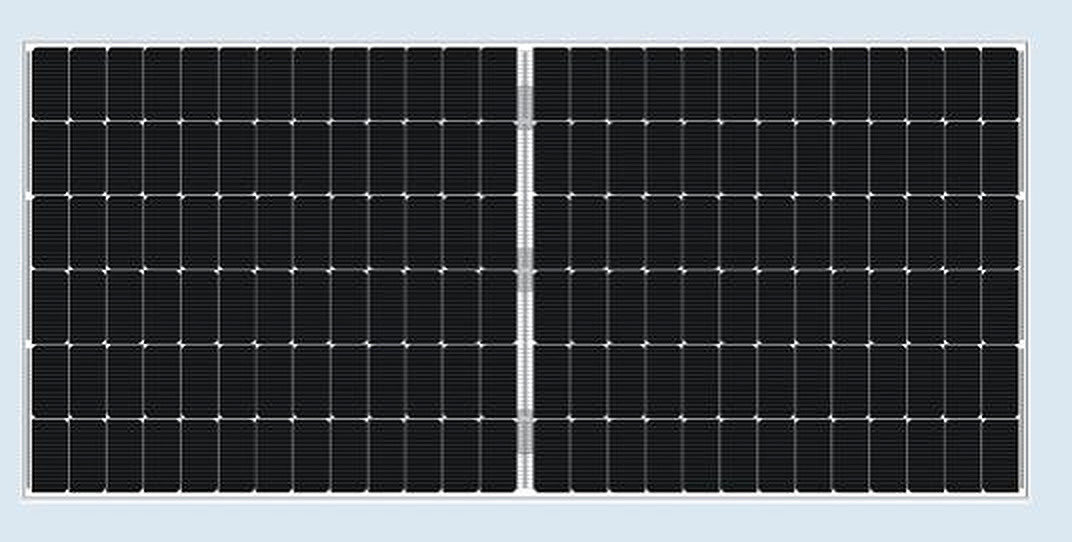From pv magazine Global
Yingli Solar has unveiled a new bifacial n-type solar module based on tunnel oxide passivated contacts (TOPCon) solar cells.
“Our n-type solar modules based on TOPCon cells can be mainly used in large-scale systems and harsh environments, because of their high bifaciality and high reliability,” a company spokesperson told pv magazine.
The Chinese solar module manufacturer said its TOPCon 24.5%-efficient cells are based on front-laminated composite film passivation, which enables the back tunnel oxide passivation contact technology to improve the cell open-circuit voltage by more than 710 mV.
“The backside micro-processing and ultra-thin tunnelling passivation layer improve the backside efficiency, as well as the cell bifaciality to over 90%,” the spokesperson said.
The 156-cell Panda 3.0 PRO module is available in six versions, with power outputs ranging from 590 W to 615 W and efficiencies ranging from 22.11% to 22.0%. Its open-circuit voltage is between 54.74 V and 56.44 V and the short-circuit current is between 13.72 A and 14.12 A. The maximum system voltage is 1,500 V.
The panel measures 2,465 mm x 1,134 mm x 30 mm and weighs 35.0 kg. It also features an IP67 enclosure and 2 mm tempered glass. It has a temperature coefficient of -0.30% per degree Celsius and its operational temperature ranges from -40 C to 85 C.
The new products come with a 30-year linear power output guarantee and a 12-year product guarantee. The degradation in the first year is purportedly 1.0% and 30-year end power output is guaranteed to be no less than 87.4% of the nominal output power.
“Yingli’s TOPCon cell capacity will be 5 GW at the end of this year, and will reach 10 GW next year and 15 GW in 2024,” the spokesperson explained. “All these capacities are located in Chinese manufacturing bases including Hebei province and Tianjin city. The production capacity of modules corresponds to it.”
This content is protected by copyright and may not be reused. If you want to cooperate with us and would like to reuse some of our content, please contact: editors@pv-magazine.com.









By submitting this form you agree to pv magazine using your data for the purposes of publishing your comment.
Your personal data will only be disclosed or otherwise transmitted to third parties for the purposes of spam filtering or if this is necessary for technical maintenance of the website. Any other transfer to third parties will not take place unless this is justified on the basis of applicable data protection regulations or if pv magazine is legally obliged to do so.
You may revoke this consent at any time with effect for the future, in which case your personal data will be deleted immediately. Otherwise, your data will be deleted if pv magazine has processed your request or the purpose of data storage is fulfilled.
Further information on data privacy can be found in our Data Protection Policy.